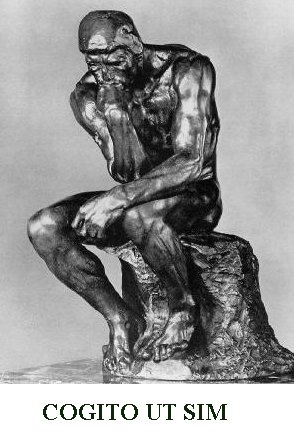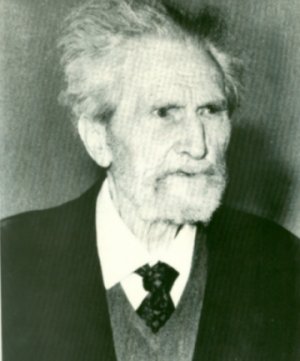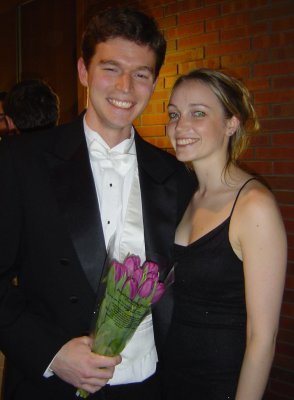
¶ What we call teaching isn't easy. It's always raising inconvenient questions, such as how shall God have used his finest materials and all his skill on that gorgeous creation in the front row, and then put no brains in it at all?
¶ Literature is news that stays news. – Ezra Pound. ¶ That’s the tightest definition I know, from one of our tightest screwballs. Here's a bit looser one: Literature records our search for reality. A target moving so fast today that a clause in some method manifesto has no hope of a shot at it. Wolfram, the great Bard of Eschenbach, similed it already in his day as ein schellec hase--a scared jackrabbit
(Parzival, 1:19).
Well, that still leaves him, me, and Horace saying only what literature does, not what it is. Ezra nailed it.
¶ And while we're at it, Ezra also declared that no man knows, on first sight, a masterpiece. Sighted one lately?
¶ . . . what a mephitic kindergarten our English departments have become . . . — Gore Vidal, “On Italo Calvino,” Best American Essays 1986, 263. ¶ The mistake of artists in general is to have subjected art to science, in other words to analysis, for in my view art begins only with the synthesis.–Braque (to Kahnweiler, 1919), in Alex Danchev, Georges Braque, A Life, 142. The professors of literature, with a little help from
Sputnik and the NDEA, destroyed their own ancient, honorable, and sorely needed calling by forgetting that. ¶ Letter to Dr. Oliver Sacks, 14 Nov. 07:
I too have crossed the Atlantic in her (then rechristened the Berlin), and although it didn't have quite so creative an effect on me, all my now-grown children still twitch and bounce to the Seuss effect, having contracted it sitting in my lap while I performed that imperishable nonsense. One of them is now a professional musician (see below). Blame it all on Rudolf Diesel?
Well, maybe something of it went into my latest project. Gottfried von Strassburg used an exacting structural meter in his great Middle High German classic Tristan (1210?). I'm the first—poet, let's say—since then to have tried to put it systematically into English, as you can see here. Both Gottfried and Geisel could rhyme, though, sometimes outrageously. That I couldn't match.
Thanks so much for your very interesting works.
--Lee Stavenhagen

All right, I can't hold it in any more. Every masterpiece, goddammit, is born in a place, at a time, in the mind of a person. Every one of them has those inalienabilities, however broadly or tightly you construe them. That's why theory, instead of unleashing literature's power, kills it. Literature is not, can never be, a science. It thrives in the mind, anointing its momentary possessor with a drop of its immortality. Pickle this commensalism and you destroy it. Now go absorb, create, or perform a great work, or be one.
 Dr. Sacks: The examples of rhythm-induced creativity in Chapter 19 of your Musicophilia ought to include The Cat in the Hat. Theodore Seuss Geisel tells in a memoir how his first inspirations to write came from an Atlantic crossing on board the Gripsholm, the throbbing engines of which, he said, begot his immortal anapests. Hmm. Launched 1925, she was notably first of the great passenger liners to use diesels.
Dr. Sacks: The examples of rhythm-induced creativity in Chapter 19 of your Musicophilia ought to include The Cat in the Hat. Theodore Seuss Geisel tells in a memoir how his first inspirations to write came from an Atlantic crossing on board the Gripsholm, the throbbing engines of which, he said, begot his immortal anapests. Hmm. Launched 1925, she was notably first of the great passenger liners to use diesels.

An insane flicker (Colaptes cafer) lives in our yard.

¶ I'm sitting at a steep dropoff on the rim of the Grand Canyon. A stiff breeze blows straight against the cliff face below me. Five big, black ravens (small green ones are rare) glide right by me, out over the edge. The strong updraft flings them into the sky, where they tumble, like crazy black feather dusters, laughing raucously.
¶ On Aggression, the English title for Konrad Lorenz’ great das sogenannte Böse (1963), ought to read something more like malice, as it’s called. He taught us that this attitude lies at one end of a continuum, which winds up on the other end at love, as it’s called. Poets and other wise folk have always known that, of course. The rest of us who don't just see a problem that needs fixing cause endless trouble like this:
¶ And while we’re on the subject, Luther, you know, gave the Serpent the most powerful line in Genesis:

Ihr werdet sein wie GOTT und wissen, was gut und böse ist.
And Luther's own greatest line is:
—with one word in the right place, allein (“exclusively”), he created the Reformation, as it’s called. Listen to how he plants it in the scansion. Prose doesn't get sturdier than Luther's.
¶ Meine Prosa hat mich immer viel mehr mühe gekostet als mein Vers. --Heine
¶

Grind all to fine mush in blender, rinse with juice of one lemon into plastic bag. Put wings, tips cut off (save for stockpot) in bag, smush around to coat, squeeze out most air and seal bag. Put bag in bowl and let meld in fridge for at least several hours, or overnight. Turn bag over now and then to spread coating. Put wings in barbecue rack over hot oak coals in smokey cooker, turning often, basting lightly with marinade. Don’t char or burn--try for even crispy brown. Tastes authentic with Traditional Ragas, streamed on Naxos EUCD1572.Marinade for ~10 wings: 1 cup plain yoghurt Salt, black pepper (corns) One onion, cut in chunks ~4 cloves garlic, peeled Thumb-sized piece of ginger, peeled and chopped One chile serrano, chopped Ground cardamom, cinnamon, comino, cloves, nutmeg, paprika, turmeric : half teaspoon each
¶ Creationists have seized upon the bacterial flagellar wheel as something that cannot exist and yet does—so it must have come about by supernatural means! This is the ancient ‘Argument from Design,’ also called the ‘Argument from Paley’s Watchmaker,’ or the ‘Argument from Personal Incredulity’ because it always has the form: ‘I personally cannot imagine a natural sequence of events whereby X could have come about. Therefore it must have come about by supernatural means.’ Time and again scientists have retorted that if you make this argument, it says less about nature than about the poverty of your imagination.” -- Richard Dawkins, The Ancestor’s Tale, 303. I say let’s call it the Argument from Ignorance. How did these Intelligent Designers pick such a feeble example? The gyration of these few molecules is about as complex as a yo-yo compared to what goes on in other vital processes, a stupendous intricacy that might well move a fool to shrug it off as something only a god would contrive.
This is the ancient ‘Argument from Design,’ also called the ‘Argument from Paley’s Watchmaker,’ or the ‘Argument from Personal Incredulity’ because it always has the form: ‘I personally cannot imagine a natural sequence of events whereby X could have come about. Therefore it must have come about by supernatural means.’ Time and again scientists have retorted that if you make this argument, it says less about nature than about the poverty of your imagination.” -- Richard Dawkins, The Ancestor’s Tale, 303. I say let’s call it the Argument from Ignorance. How did these Intelligent Designers pick such a feeble example? The gyration of these few molecules is about as complex as a yo-yo compared to what goes on in other vital processes, a stupendous intricacy that might well move a fool to shrug it off as something only a god would contrive.
¶ By the way, if you find a sticker in your biology text warning you that Evolution is a theory, not a fact, regarding the origin of living things. This material should be approached with an open mind, remember what Edward Abbey said about that: If you keep an open mind, people will dump a lot of garbage in it.
¶ Those who cavalierly reject the Theory of Evolution, as not adequately supported by facts, seem quite to forget that their own theory is supported by no facts at all.--Herbert Spencer, Quoted by Michael Shermer in SciAm, 5 March 05, 32.
¶ Once when Lura, the Duchess of Killarney, was vacationing in the eastern European mountains, friends invited her on a horseback expedition through the region.
Having sunbathed nude the day before, intent on equalizing her fashionable tan, she had sustained a painful burn on parts usually protected by her bikini.
Now, too embarrassed to tell her friends the truth, but unwilling to invent an outright falsehood as an excuse, she asked her husband whether he thought she had recovered enough to go.
The Duke of Killarney bent to inspect the parts in question. “Tour all Ural, Lura?” he muttered, doubtfully. “Too raw, Lura. Lie.”
¶ Ian causes about the same effect with the 3d sonata. For more of his music, Google him.

My stepson, Ian Scarfe, decided in high school that he really wanted to study music. So we had a little talk. Okay, I said, great, but look, you have some problems. First of all, you’re too old. And you don't have absolute pitch. You’re not queer, either. Hell, you’re not even Jewish. So what is this, you mucking around with music?
Well, since when do kids take advice? He stuck to it, being maybe just perverse, clear through college to a B.M. in performance.
Meanwhile we found a very good deal for a flawless Yamaha C3, serial D110233 (I’m a sometime piano technician). I wonder often how many young talents have gone down in cold flames for want of a competent instrument, no small item in a family budget. 
The rest isn’t history yet. I’m no Haydn, and he’s no Mozart (more Sviatoslav Richter-ish), but I predict that in this world he’ll cause some talk. Umm, other, that is, than what you may already have heard. Here’s some Petrushka (Stravinsky), with his friend Noreen Murdock in their own two-piano arrangement. Hamburg Steinweg and Steinway D, in Hudson Hall, Willamette University, 16 March 05.
Since then Ian has gone on to complete two frightfully expensive magister musicus degrees at the frightfully prestigious San Francisco Conservatory. I severely hope the frightfully important people in this business are getting to know him, and vice versa, because that's what puts the goodies on the table, you understand.
In appraising my music the critics wrote a good deal of nonsense; for example, the best of them maintained that the finale of the Second Sonata made him think of a herd of mammoths charging across an Asiatic plateau. –Sergei Prokofiev, Autobiography, 264, in Neil Mintern, The Music of Sergei Prokofiev, 26.
Orthoprejudices
Isoprejudices
Hyperprejudices
Back to Index
